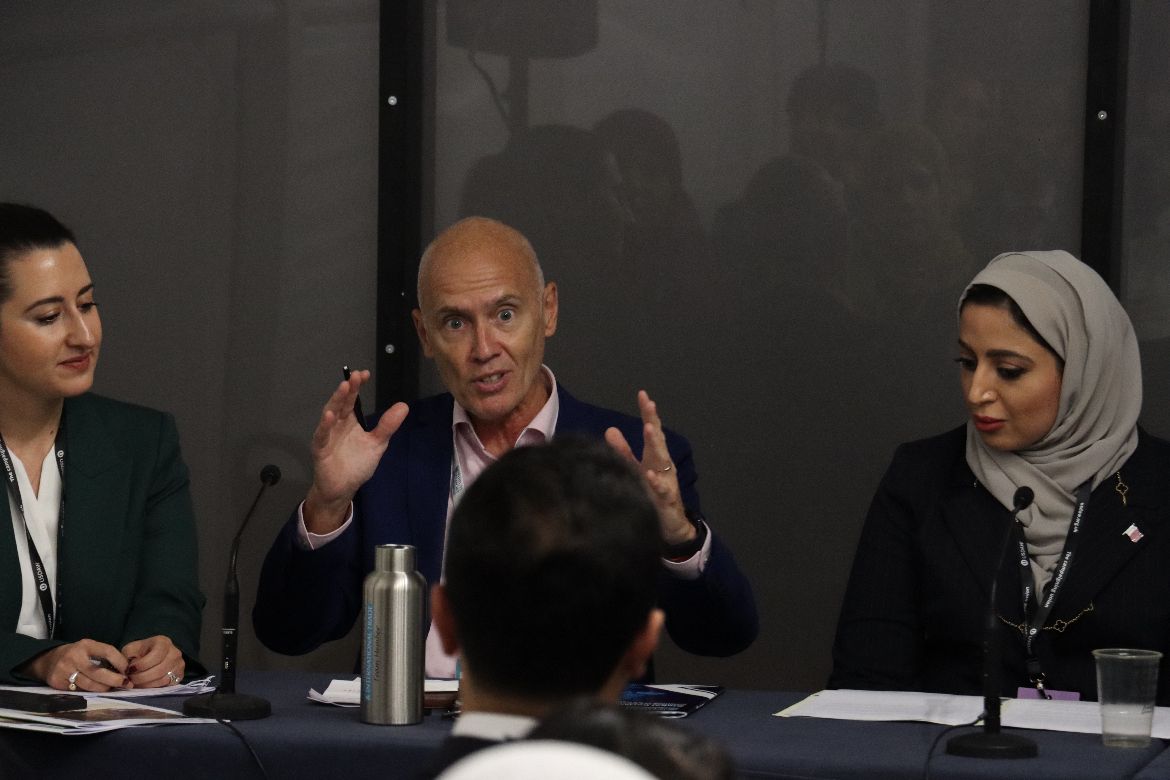
E-commerce could be the best way for the UK to engage with the Middle East and North Africa (MENA), according to a leading trade figure.
At a recent Labour Party Conference panel in Liverpool, hosted by Labour4SMEs, Institute of Export & International Trade (IOE&IT) director general Marco Forgione said that online international trade was one of the “key ways” to engage with the MENA region.
SMEs4Labour is an internal party group that aims to provide a forum for small businesses to work with Labour.
The total size of MENA’s e-commerce market size is predicted to be worth US$100bn annually, with Egypt and members of the Gulf Cooperation Council (GCC) – comprising Bahrain, Kuwait, Oman, Qatar, Saudi Arabia and the United Arab Emirates (UAE) – accounting for 80% of this market.
Young age
Forgione highlighted the fact that the MENA region had one of the youngest average ages in the world:
“The potential of the MENA region is vast. There, the median age is 22, compared to a global average of 28. The future is in the MENA region, and we in the UK should be part of promoting that future.”
He also pointed to research showing that this same customer base tends to be highly-educated, tech-savvy and largely affluent, with 88% of consumers in one survey saying they planned to either maintain or increase their current level of e-commerce spending in 2023.
The UK government is currently negotiating a trade agreement with the GCC. Last month (27 September), Mansoor Abulhoul, the UAE’s ambassador to the UK, said talks were “progressing well” and showing encouraging signs.
Role of SMES
Forgione highlighted the “significant role” e-commerce could play in supporting SMEs to trade with the MENA region. He also pointed to the establishment of the E-Commerce Trade Commission, which IOE&IT chairs, one of the key aims of which is to help SMEs seize the opportunities of e-commerce for trading internationally.
Forgione also highlighted the potential of freeport connectivity in boosting trade flows between the UK and MENA region, highlighting the benefits brought by the Liverpool freeport as an example.
Forgione also called for better and more streamlined support for businesses selling online. He advised one questioner in the audience that, in order to build business links with MENA, it was best to establish yourself in one market, rather than take on all at once:
“Don't boil the ocean, pick one market to focus on and then find a trusted adviser to help you”.
Responding to another question on entrepreneurship, Forgione argued that a future focus on the skills agenda should help entrepreneurs to see international trade as a norm for boosting growth.
More love for SMEs
Yasmin Qureshi, a Labour MP and shadow minister for women and equalities, commented that the small businesses she speaks to want to grow worldwide which, she said, required better support from government.
The Bolton South East MP, herself a former shadow international development secretary, noted that 48% of private sector employment is made up of SMEs, highlighting just how important they are in the UK’s ecosystem. She also called for a fairer business rates system to further support the regulatory environment in which small businesses operate.
“Small businesses rarely receive the public's attention”, despite deserving it, according to Qureshi.



